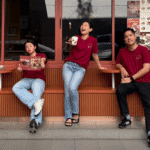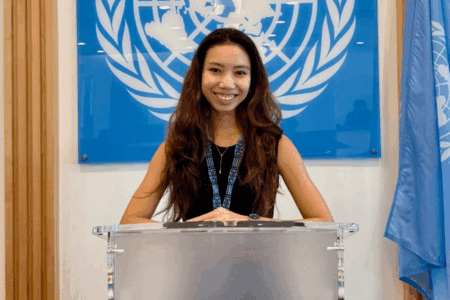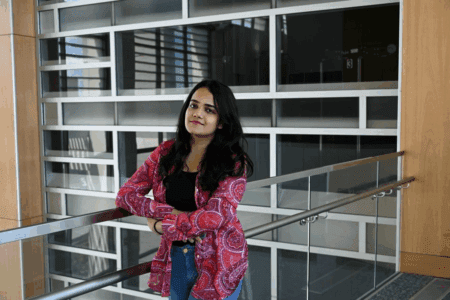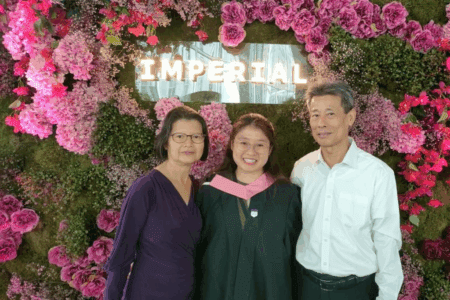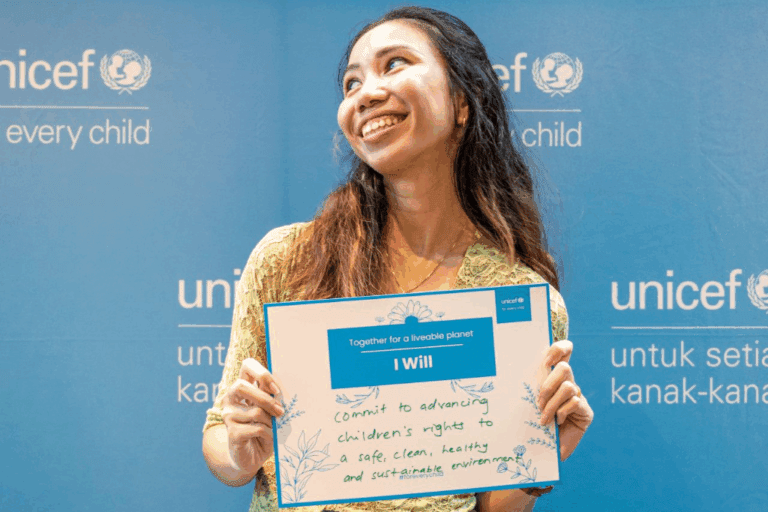
If you’re someone who wants to make an impact with your career, one of the institutions you will undoubtedly look towards is the United Nations.
That’s what Jasmin Irisha thought, too. An environmental science graduate from the University of Nottingham’s Malaysian campus, Irisha wanted to enter the eminent world of the United Nations. And she did.
Here’s how.
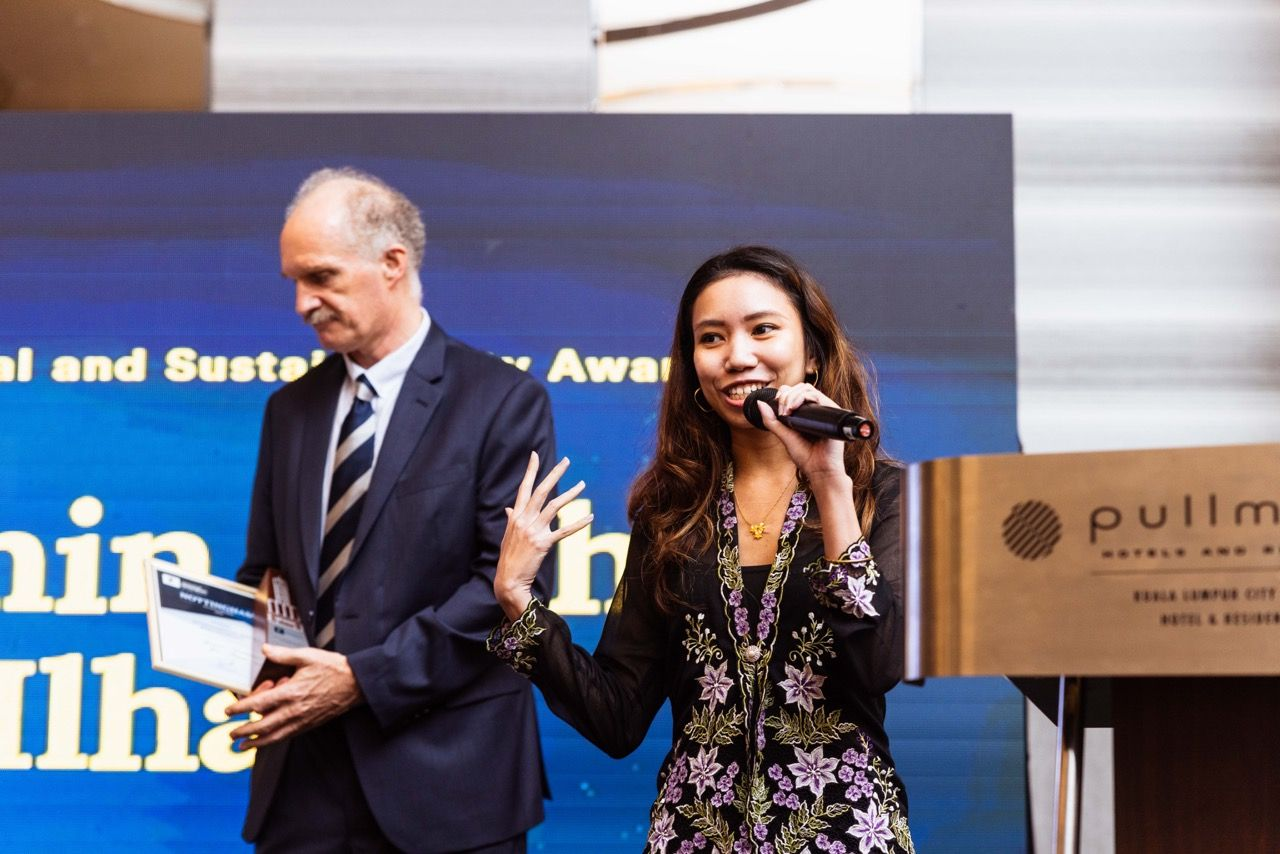
Irisha studied at the University of Nottingham from 2012 to 2016. Source: Jasmin Irisha
1. Meet the advanced requirements
Noticing that the jobs she wanted had a minimum requirement of a master’s degree, Irisha decided to go above and beyond to pursue it at Columbia University, the Ivy League university in New York. This is a tough requirement nowadays, as the value of master’s degrees are being questioned. There are also increasingly more people claiming that they cannot find a job with their graduate degree. So, investing in a master’s in today’s climate might sound like risky business.
Yet, Irisha decided to go through with it. Before that, she even worked to enhance her research skills.
Her experience at Columbia University was an enriching one, but her journey there was a winding road — read more about her university experience here.
2. Pick up soft skills (and start talking)
Hard skills and requirements aside, there’s also a lot of soft skills that will make or break one’s career. One thing that Irisha learnt while studying in the US was the importance of visibility and optics.
During her master’s, Irisha kept seeing one guy contributing his thoughts and ideas in class. What he shared, though, was often just agreements and fillers, not necessarily thoughts that were substantial.
Picking up on that, she began to understand the importance of being visible, present, and participative.
If you want to advocate for the planet, sometimes, you have to start by advocating for yourself. You need to be confident about what you bring to the table. Sometimes, to get ahead is not about the technicalities, but about being convincing.
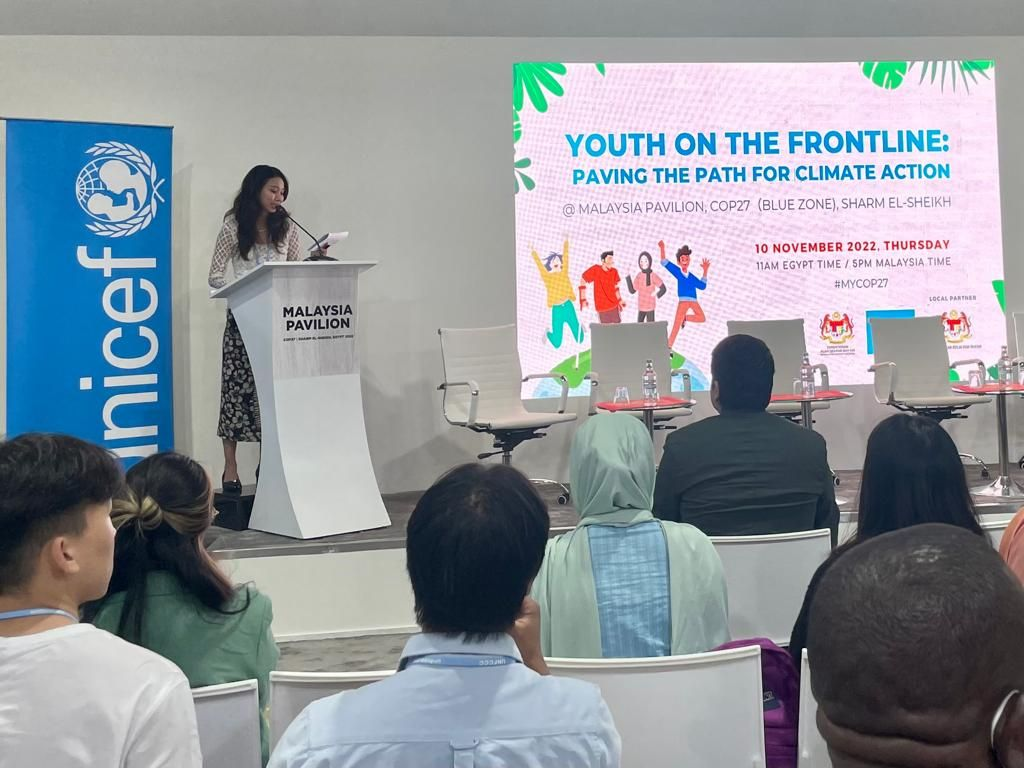
Irisha’s first role at UNICEF was a Climate and Environment Consultant. Source: Jasmin Irisha
3. Get your foot in the door, any door
Returning to Malaysia in the middle of the pandemic, Irisha was desperate to find an internship placement. In her desperation, she began calling up people that she knew, from networks developed during her undergraduate years in Malaysia. She would send out cold emails and messages too, not shy about making use of her connections.
Through her efforts, she was able to get a graduate internship position at the United Nations Development Programme (UNDP). From there, she worked on a project with UNICEF, and was able to secure her next role at UNICEF as a consultant. UNICEF is an organisation under the United Nations.
She had been an older intern, being 26 years old at the time. But she was confident about what she brought to the table. Whether she was called an intern or a consultant, she knew what she was contributing to the teams she was in.
“So, own your stuff. It doesn’t matter where you start as long as you get a foot in the door. That provides you with the leverage to go where you want in the space,” she says.
4. Who you know still matters
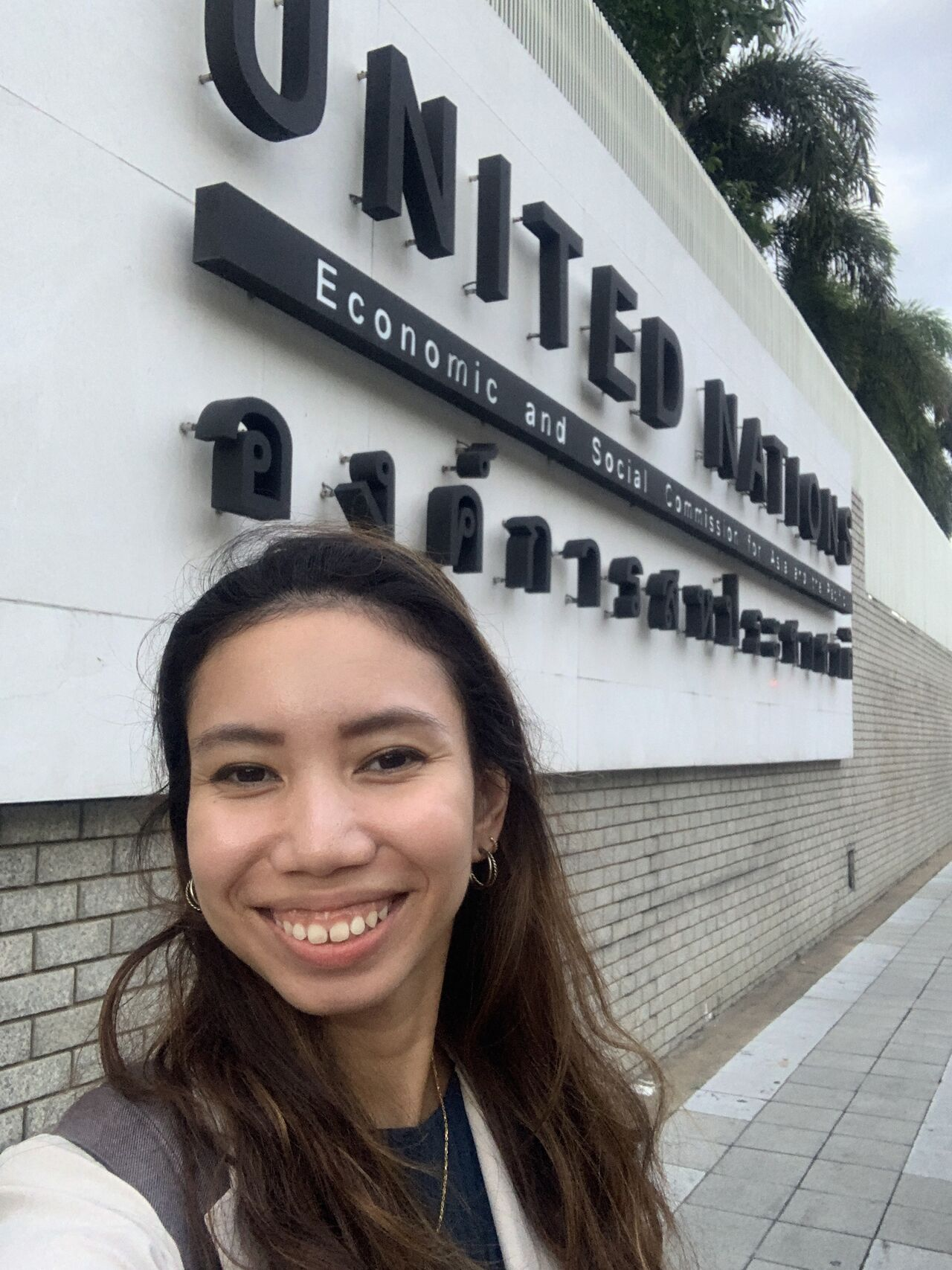
Irisha worked as a Climate and Environment Officer at UNICEF from October 2023 to September 2025. Source: Jasmin Irisha
It goes without saying that networks and relationships are critical in building one’s career. That said, you shouldn’t see it as a be all and end all.
“Don’t get me wrong, I still had to apply and I was competing in a pool of 200 people,” Irisha says. “You still have to be extraordinary in your application. But you have to hone relationships because nothing beats human to human connections.”
Even with AI filters now, if the person hiring knows someone who is applying, they’d be more open to receiving and accepting that application. And Irisha knows that firsthand, since she has been in numerous hiring roles over the past five years at UNICEF. So that’s being taken into account on top of your application
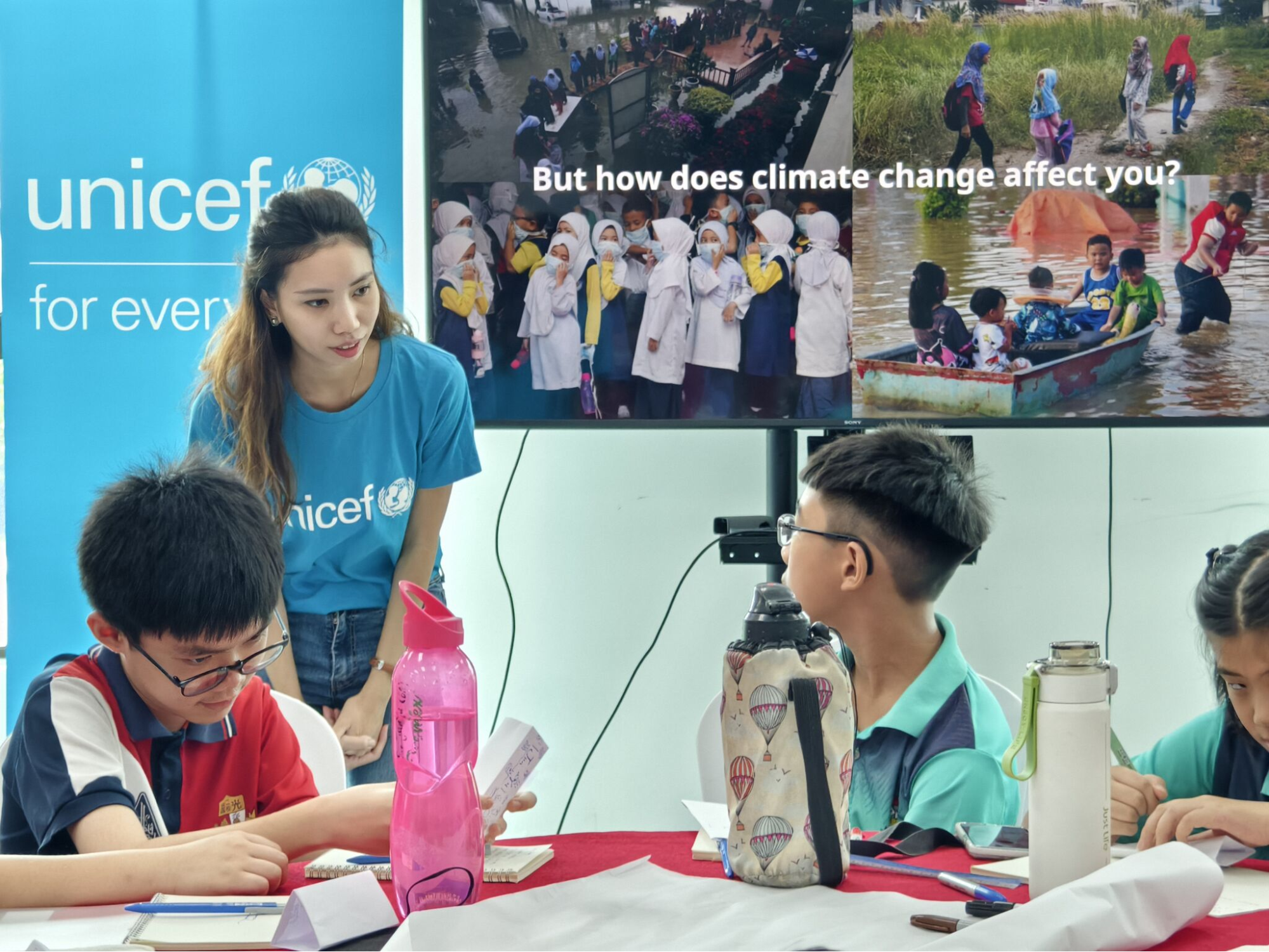
UNICEF is the United Nations Children’s Fund, a United Nations agency dedicated to protecting the rights and well-being of children worldwide. Source: Jasmin Irisha
Is a career with the UN all that?
Before Irisha joined the UN, she had a preconceived notion of what the UN system is like. We all read so many reports from the UN, see them used in headlines, or even quote them ourselves. It’s natural to think of them as very high-level in terms of work and operations.
But the reality is, once you get in it, it’s just like any other organisation. You have your role, bureaucracy, international politics, external stakeholders, and partners.
And you might think that it’s difficult to make an impact when you’re in such a large organisation with so many layers, but your work does actually get translated to real world results.
For instance, numerous reports that Irisha worked on helped to quantify environmental concerns in Malaysia. With the UN being such a consequential institution, their reports do gain traction with key stakeholders such as the government.
“No work is too small,” Irisha reminds. “You ask me to go down to the ground to have focus group discussions with children, young people, and ‘Orang Asli’ (indigenous people of Malaysia), I will do that. You ask me to go to the ministry to have a call with the minister, I will do that too. Advocacy happens at every level.”
Five years into her post at UNICEF, though, Irisha is ready for new horizons to impart her impact. Whatever shore she arrives at, though, she will certainly bring with her years of expertise and a drive for meaningful impact.







